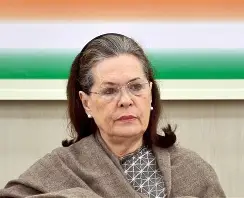The Delhi High Court lambasts the AAP-led government for its delay in presenting the Comptroller and Auditor General’s (CAG) report on the liquor scam to the Delhi Assembly, questioning its integrity.
BY PC Bureau
The Delhi High Court reprimanded the Aam Aadmi Party-led Delhi government for its delay in submitting the Comptroller and Auditor General’s (CAG) report on the ongoing liquor scam to the Assembly Speaker.
The court expressed disappointment over the Delhi government’s lack of urgency, stating, “The way you’ve been dragging your feet is unfortunate. You should’ve promptly sent the reports to the Speaker for a discussion in the Assembly.” Justice Sachin Datta further questioned the government’s actions, suggesting that the delay in sending the report to the Lieutenant Governor and its mishandling of the matter raised doubts about the Delhi government’s integrity.
The Delhi High Court was also presented with a petition from BJP MLAs, including Vijender Gupta, who demanded a special session of the Delhi Assembly. However, the court expressed skepticism about holding a session so close to elections, stating, “How can there be a special session now?”
The CAG report, which audits the Delhi government’s excise policy, revealed a revenue loss of Rs 2,026 crore to the state. Among the findings, the report highlighted the lack of transparency in pricing, deviations from the policy’s objectives, and violations in issuing licenses. The report also criticized the government for issuing licenses without proper checks on excise rules and regulations, including the lack of verification of criminal antecedents, financial solvency, and other essential requirements.
Sanjay Singh, an AAP MP, questioned the credibility of the CAG report, alleging that the BJP was spreading “fake news” during the Model Code of Conduct period ahead of the elections. Singh claimed that the CAG’s findings, which pointed to the irregularities leading to a loss of Rs 2,026 crore, were politically motivated.
In response, the Delhi Assembly Secretariat informed the court that tabling the CAG reports would serve no useful purpose, as the Assembly’s term is set to end in February. The court had previously sought responses from the Delhi Government, the Speaker, and others involved in the case, as BJP MLAs had filed a petition for a special session to present 14 CAG reports before the Assembly.
Meanwhile, with the Delhi Assembly elections scheduled for February 5, the political war between the AAP and BJP has intensified, with the BJP criticizing Kejriwal over the alleged Rs 32 crore renovation of his residence, referring to CAG findings that suggested corruption. The ongoing tension between the two parties highlights the growing importance of the CAG report and its implications for Delhi’s political future.














